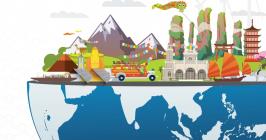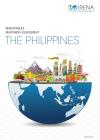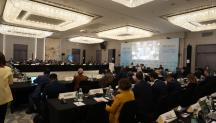

-
-
IRENA (2017), Renewables Readiness Assessment: The Philippines, International Renewable Energy Agency, Abu Dhabi.
Copied
/-/media/Files/IRENA/Agency/Publication/2017/Mar/IRENA_RRA_Philippines_2017.pdf
Copied
Renewables Readiness Assessment: The Philippines
Newsletter
Like many countries in South East Asia, the Philippines faces twin challenges of population growth and rising energy demand. Dependent on imports for nearly half its primary energy supply, the country is highly exposed to oil price volatility. Frequent tropical storms, meanwhile, adversely impact its energy infrastructure.
In response, the Philippines has resolved to bolster energy security, pursue low-carbon economic development and contribute global efforts against climate change. Renewable energy technologies have become increasingly prominent in national planning and policy-making. An ambitious target adopted in 2011 calls for 15.3 gigawatts of renewable power capacity by 2030.
This Renewables Readiness Assessment (RRA), undertaken in co-operation with the Philippine government, identifies barriers and proposes key actions to strengthen the policy, regulatory and institutional framework in order to accelerate renewable energy deployment.
Recommended actions:
- Raise public awareness to ensure sustained political commitment
- Assess existing grid infrastructure.
- Examine institutional capacity in the renewable energy sector
- Study the potential for electrification through renewable-based mini- and micro-grids




